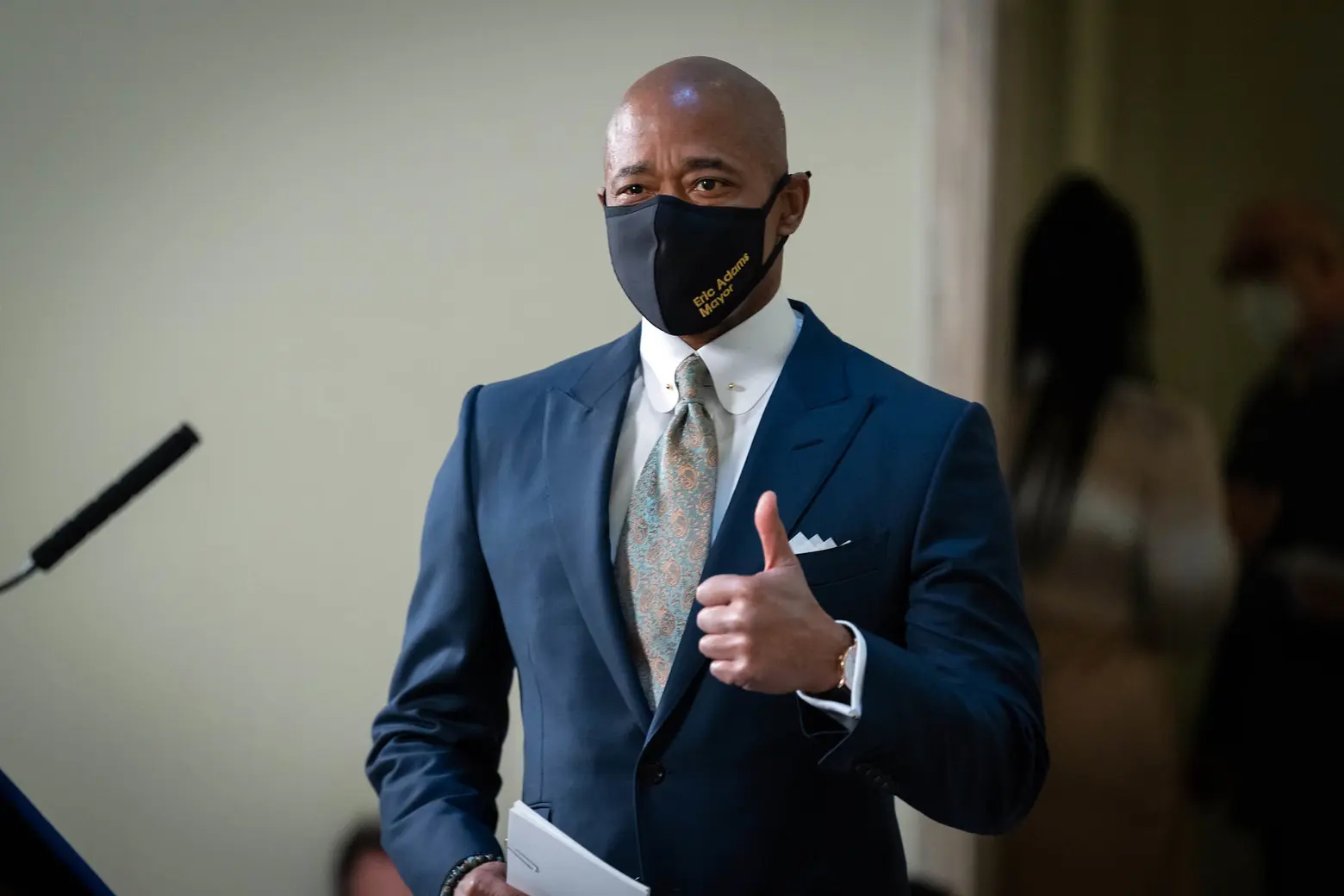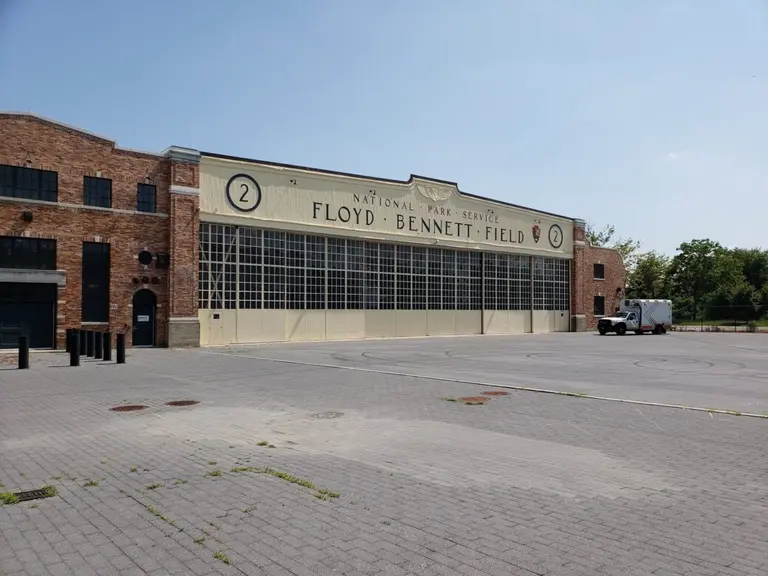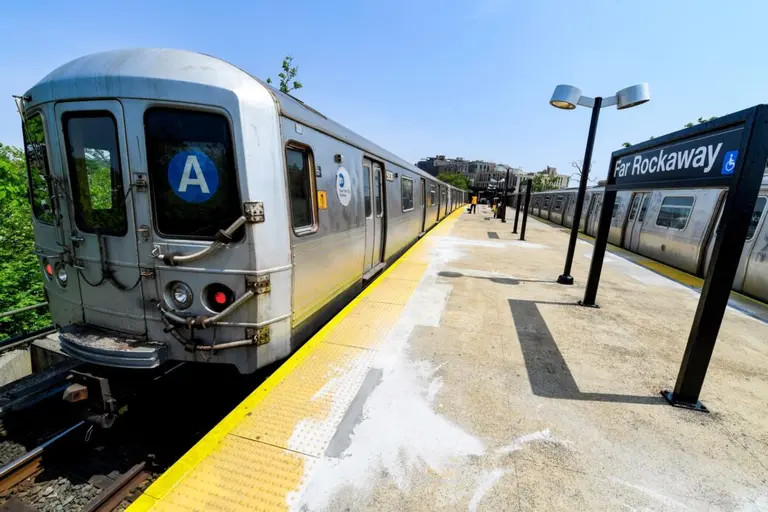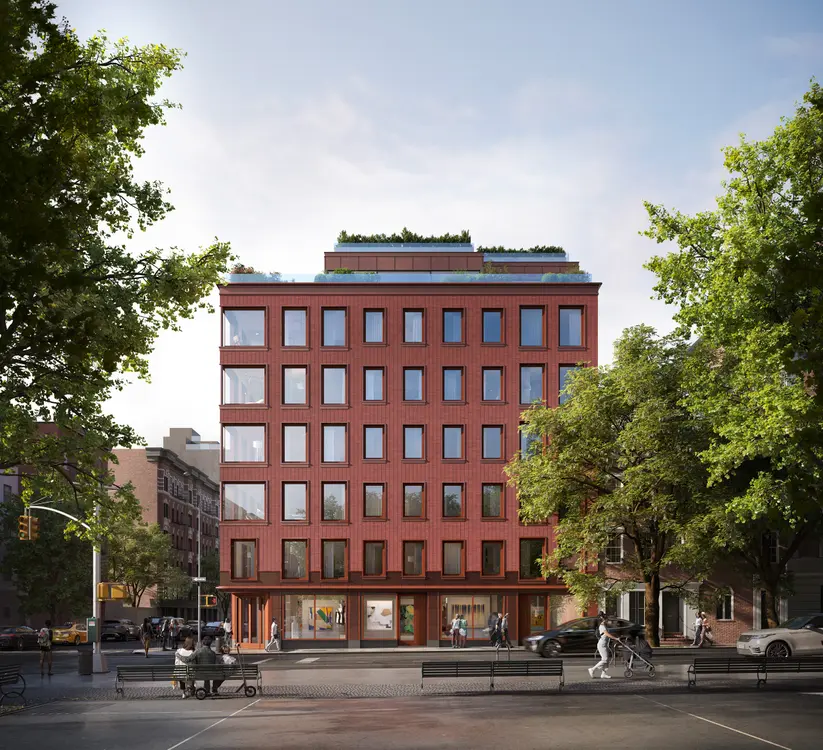Mayor’s budget comes up short on housing and homelessness, NYC advocates say

Mayor Eric Adams presents New York City’s $98.5 billion Preliminary Budget for Fiscal Year (FY) 2023. City Hall. Wednesday, February 16, 2022. Credit: Ed Reed/Mayoral Photography Office via Flickr.
Mayor Eric Adams released the city’s preliminary budget for fiscal year 2023 last Wednesday, placing emphasis on public safety, employment, and aiding the plight of the city’s youngest residents by addressing childcare and at-risk youth. While the mayor’s safety-focused policy actions–prohibiting homeless people from sleeping in subway stations, for example–made headlines, advocates for equitable housing and the homeless say the proposed budget is a disappointment without a previously promised focus on those basic needs.
 Photo by Daniel Lee on Unsplash
Photo by Daniel Lee on Unsplash
The city’s budget reflects a strong message of fiscal discipline. Regarding spending reduction and funding adjustment to address economic challenges and a budget gap, the mayor implemented a Program to Eliminate the Gap (PEG), which he explains in a statement accompanying the budget announcement: “Ten days into my administration, I implemented a Program to Eliminate the Gap (PEG). With limited exceptions, agencies were instructed to cut three percent of both their Fiscal Year 2022 and 2023 city-funded budgets.”
“In less than six weeks, agencies found new ways to reduce spending and adjust funding to meet realistic program costs. The program was a success. We achieved almost $2 billion over Fiscal Years 2022 and 2023. This includes $1.1 billion in 2023 that was applied to closing that fiscal year’s nearly $3 billion budget gap.”
In the announcement, the mayor makes little mention of housing or preventing homelessness, other than to address an increase in real estate values, saying, “The steps we take together will make New York a safer, more just, and more prosperous city.”
Budget allocations for the Department of Homeless Services (DHS) are diminished slightly from $2.766 billion to $2.151 billion between 2022 and 2023. As City Limits reports, much of this reduction is directly tied to the fact that the previous number reflects a $500 million COVID-related federal funding allocation to the agency. The city’s adult shelters will see less money coming their way in the upcoming fiscal year. The Housing Preservation and Development (HPD) department allocation remains consistent beyond 2022.
Some highlights from the mayor’s statement on the FY 23 budget:
- Puts more money in families’ pockets by expanding the New York City Earned Income Tax credit (to $250 million in FY23),
- Baselining the funding for 100,000 summer jobs for city youth, including 90,000 in the SYEP ($79 million in FY23 for a total baselined investment of $236 million),
- Helping low-income New Yorkers afford Metro Cards by guaranteeing annual funding for the Fair Fares program ($75 million in FY23),
- Conducting comprehensive health screenings, regular home visits, and referral services for first-time moms in the 33 neighborhoods hit hardest by COVID-19 with the New Family Home Visits program ($30 million in FY23),
- Creating more childcare space with a property tax abatement for property owners who retrofit property ($25 million in FY23),
- Helping parents get back to work with tax credits for businesses that provide free or subsidized childcare ($25 million in FY23),
- Preparing youth for aging out of foster care with mentoring, tutoring, and other important services with Fair Futures ($13.5 million in FY23), and
- Reducing maternal deaths and childbirth complications and provide care coordination to high-risk patients with Maternal Medical Home and Obstetric Simulation Training ($3 million in FY23), among other things.
The mayor’s announcement spoke of the city’s successes, such as Wall Street bonuses, job recovery, and real estate sales growth, though he admits, “These positive indicators are encouraging, but we must bear in mind that the recovery has not reached all New Yorkers.”
In response to Mayor Adams’ first preliminary budget, Laura Mascuch, Executive Director of the Supportive Housing Network of New York, said the group is “deeply disappointed” in Adams’ budget, which she said goes back on a campaign promise to invest $4 billion in affordable housing.
“We are also very disheartened to see that his proposal did not match the state’s 5.4% COLA for our workforce, whose members have been and continue to be ‘essential’ in providing support and services to New York’s most vulnerable residents,” Mascuch said. “While we appreciate the Mayor’s focus on efficiency, the truth is that failure to address the City’s homelessness and affordable housing crises at this critical time would be the ultimate inefficiency. It will result in more people on the street and in shelters, which is more expensive in the short and long term – taking both a societal and financial toll – than investing in safe and affordable housing.”
Looking forward, Adams speaks of a city triumphant: “And as New York City goes, so does our nation. The American Dream has always started in New York City, and this moment is no exception. Together, we will embark on an urban renaissance, unlike anything we have seen in our lifetimes. A renaissance that will light the way and lead the nation. Together, we will rise as one city, the greatest in the world: New York City.”
Despite the emphasis on prosperity, the city’s housing advocates are concerned that many New Yorkers may fall through the cracks of a poorly constructed safety net rather than rise with the tide.
Rachel Fee, Executive Director of the New York Housing Conference, said in a statement:
“The housing crisis is top of mind for millions of New Yorkers, and especially for those living in public housing, facing eviction, and experiencing homelessness. We are extremely disappointed that Mayor Eric Adams did not even mention housing in his remarks nor prioritize it in his budget plans, instead choosing to maintain the status quo and abandon his campaign promise to double city capital spending on affordable housing and NYCHA. In the process, he sent a loud and clear signal to his struggling constituents: ‘despite what I said on the campaign trail, don’t expect bold action on housing.’
As a candidate, Mayor Adams promised to spend $4 billion a year on housing because he knows that affordable housing significantly improves lives, creates jobs, and makes fiscal sense in the short- and long term. Unfortunately, he has failed to take action as mayor on a policy he called ‘smart’ as a candidate simply because of self-imposed budgetary constraints – and it is vulnerable New Yorkers who will suffer the consequences.”
RELATED:
- New York City’s housing experts have a wish list for Mayor Adams
- NYC announces plan to stop homeless New Yorkers from sheltering on the subway
- Adams, Hochul will increase police presence in NYC subway system to combat homelessness and crime
- NYC commits $75M to Fair Fares program, makes it a permanent part of budget


























